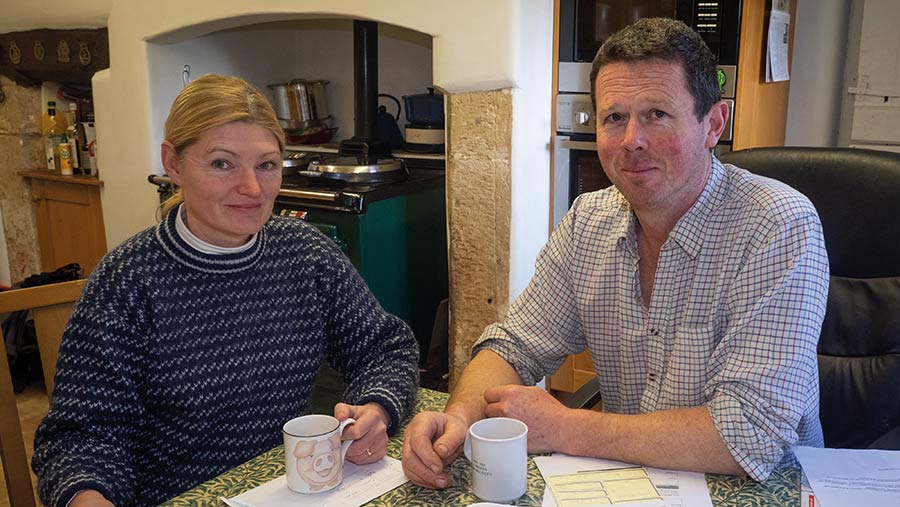Farmer Focus: Can we keep on with sucklers losing £500 a cow?
 © Kathy Horniblow
© Kathy Horniblow We received the full breakdown of our financial performance from Reading University again. It was grim reading for the cows, but excellent for the sheep.
Can we continue to lose £500 a cow, while making £163 a ewe?
I have spoken about sucklers before. They are my hobby, my grazing tool and my supply of farmyard manure.
See also: How Cheshire suckler farm adapted to survive drought
The net result is we have reduced numbers by another four cows – down to 10 Simmentals and 10 Charolais.
The first pregnancy scan of 200 pedigree ewes and 200 commercial ewes was good and bad.
The commercials scanned at 171%, with 18 empties raddle-marked for rescan in January. These lambs should get away quickly, with any draft ewes cashed as well.
The pedigrees resulted in Charollais, Blue Texel and Beltex with OK numbers, and only a few not in-lamb to scan again.
However, the pedigree Texels were a disaster, again. The two expensive new rams got only 35 out of 85 in lamb (about half in each service group).
All the pedigree ewes have had the same management since weaning and were at similar body condition scores, so why aren’t the Texels in-lamb?
Most empties have raddle marks, so hopefully there will be lots in lamb at the January scan.
But these were multi-ram service groups, so they will be commercial lambs, without the cost and time of DNA testing to see which one is which.
Looking at a recent dispersal sale catalogue for a top Texel flock convinces me that many in the breed are going entirely terminal, with little thought of the fertility and maternal side.
There were 12 ewes and 163 recipients carrying embryos – even the stock ewes had embryos implanted. I can see the benefits of ET, but my worry is the lack of commercial realism.
We are scanning all the other ewes on 15 January, so all the groups will be back here from far and wide.
The triplets and thins will stay inside, the empties will head straight to market, and the rest will go onto 34ha (85 acres) of turnips and kale.
Although we still need a lot of rain to correct the summer deficit, I hope it is gently spread out, so we get good utilisation of the turnip bulbs.

